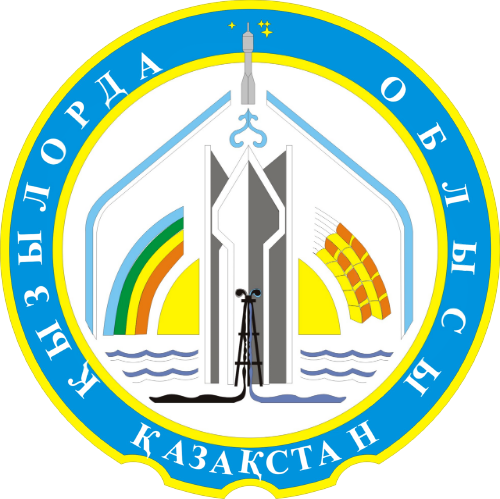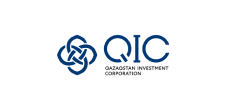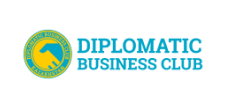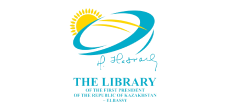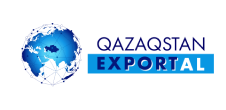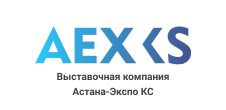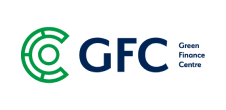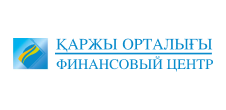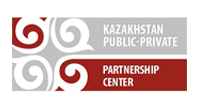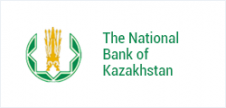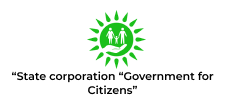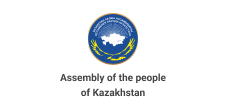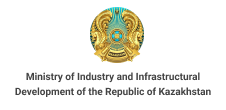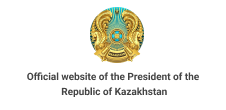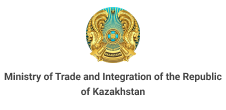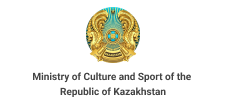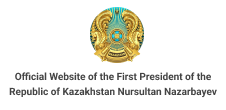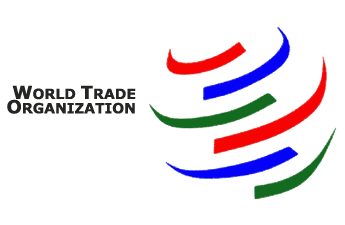
HIGH-LEVEL FORUM ON ADVANCING TRADE AND INVESTMENT FACILITATION FOR DEVELOPMENT: AN EURASIAN PERSPECTIVE
HOSTED BY THE REPUBLIC OF KAZAKHSTAN IN PARTNERSHIP WITH THE
WTO FRIENDS OF INVESTMENT FACILITATION FOR DEVELOPMENT (FIFD)[1]
28 September 2018, Astana, Kazakhstan, Hotel Hilton Astana[2]
PROVISIONAL PROGRAMME
|
8:30 a.m. - 10:30 a.m. |
Registration |
|
9:00 a.m. - 10.15 a.m. |
Breakfast meeting hosted by the Republic of Kazakhstan (by invitation only) |
|
10:30 a.m. - 11:10 a.m. |
Opening Ceremony Introduction: H.E. Mr. Timur SULEIMENOV, Minister for National Economy, Republic of Kazakhstan
|
|
Session 1
Facilitating and Scaling up Trade and Investment for Sustainable Development, Trade and investment are indispensable for economic growth and sustainable development. The rise of global value chains (GVCs), digitization, as well as the increasing linkages between trade and investment have a profound impact on the economic landscape, giving rise to new industries, transforming business models and reshaping the global economy. These developments are raising new challenges and opportunities for governments and the international investment policy community. Against that backdrop, this session will explore the role of investment and investment policies in fostering sustainable development, competitiveness, economic diversification and growth. Investment helps countries to connect to GVCs, link up to the digital economy, build up their productive capacity and diversify their exports. However, significant challenges remain: investment in developing countries will need to step up to fill the annual US$2.5 trillion funding gap necessary to meet the Sustainable Development Goals (SDGs). The session will focus on these policy issues, bringing in the perspective of the Eurasian region. Guiding questions for panellists: 1. How is the rise of GVCs, digitization and the increasing linkages between investment and trade affecting Eurasia's economic landscape? 2. What role can investment policies and measures play in fostering development, economic diversification and growth for Eurasia, as well as in meeting the 2030 SDGs? 3. What are the key challenges faced by policy-makers in reforming trade and investment policies and what should be prioritized? 4. How can domestic, regional and multilateral initiatives on trade and investment facilitation complement and mutually reinforce each other? Moderator: H.E. Mrs. Zhanar AITZHANOVA, Permanent Representative of Kazakhstan to the WTO |
|
|
11:10 a.m. - 12:45 p.m. |
Followed by an open discussion. |
|
12:45 p.m. - 2:00 p.m. |
Lunch |
|
Session 2 Addressing Investment Facilitation Needs and Challenges – A Business Perspective This session will focus on the ground-level obstacles to investment faced by the private sector and what can be done to resolve them. Examples of such ground-level obstacles include: the lack of transparency and predictability of investment measures; unnecessarily complex and burdensome investment-related administrative procedures and requirements that cause uncertainty and impose extra costs to economic operators; inadequate communication channels with governments to address investors' enquiries and/or solve their problems; as well as other factors raising the costs of investing and doing business. The objective of this session is to enable a constructive dialogue with the private sector to help policy-makers better understand the ground-level obstacles faced by business when investing abroad. Guiding questions for panellists: 1. Where are the major opportunities for expanding investment in Eurasia? 2. What are the key ground-level obstacles that companies/investors face when investing in the Eurasian region? 3. What investment facilitation measures/tools have proven most useful in addressing the ground-level obstacles and creating an investment-enabling environment? 4. How can governments better respond to the business/investors needs and help alleviate the challenges faced when investing in different countries? What improvements to domestic investment facilitation frameworks should governments prioritize? Moderator: Mr. Sean DOHERTY, Head of International Trade and Investment, World Economic Forum |
|
|
2:00 p.m. - 3:15 p.m.
|
Followed by an open discussion. |
|
Session 3
Sharing Investment Facilitation Experiences, Innovations, Success Stories and Challenges This session will explore concrete policies, measures, and practices that governments can implement to facilitate investment. It will discuss the most useful tools to improve the transparency and predictability of investment measures, reduce red tape and streamline administrative procedures, enhance international cooperation, and build constructive stakeholder relationships. The session will showcase concrete investment facilitation policies and measures implemented at the national, bilateral and regional level, and identify best practices that could be emulated throughout the region. The session will also address the challenges faced when implementing those measures and how technical assistance and capacity building can assist in that regard. Guiding questions for panellists: 1. What are the main elements of an effective and successful domestic investment facilitation framework? 2. What are the main challenges encountered when reforming investment facilitation policies (e.g. coordination among ministries, agencies and local governments; communication with relevant stakeholders; financing)? 3. What concrete investment facilitation policies, practices and measures should governments implement? Is there any sequencing/prioritization to be considered? Through practical examples, what national and regional best practices can be identified? 4. How could technical assistance and capacity building help Eurasian governments implement investment facilitation measures? Moderator: H.E. Mr. Juan Carlos GONZALEZ, Permanent Representative of Colombia to the WTO, Coordinator of the Structured Discussions on Investment Facilitation for Development |
|
|
3:15 p.m. – 4:45 p.m.
|
Mr. Khalil HAMDANI, Visiting Professor, Graduate Institute of International and Development Studies, Lahore School of Economics Followed by an open discussion. |
|
4:45 p.m. – 5:00 p.m. |
Coffee break |
|
Session 4 Engaging in multilateral cooperation to facilitate investment for development The session will address the initiative currently under way among a group of WTO Members, aiming at developing a multilateral framework on investment facilitation for development. The ongoing Structured Discussions on Investment Facilitation for Development focus notably on improving the transparency and predictability of investment measures; streamlining and speeding up administrative procedures; and enhancing international cooperation, information sharing, the exchange of best practices, and relations with relevant stakeholder – as well as capacity-building and technical assistance. Against the backdrop of the initiatives already under way in Eurasia and other regions, the session will discuss how these efforts could be reinforced and complemented at the global level. It will focus on the possible "value added" of a WTO investment facilitation framework – in terms of establishing clear multilateral benchmarks, strengthening countries' reforms, providing a forum for investment facilitation cooperation, and mobilizing technical assistance and capacity building in support of developing and least-developed country Members. Guiding questions for panellists: 1. What are the benefits that multilateral cooperation brings to countries' investment facilitation efforts? 2. How is the WTO investment facilitation for development initiative relevant to the investment facilitation priorities, approaches and challenges highlighted during this High-Level Forum? 3. What are the main principles that should govern a multilateral framework on investment facilitation for development? 4. How can a multilateral framework on investment facilitation for development address the specific investment facilitation needs of developing and least developed country Members? Moderator: Mr. Hamid MAMDOUH, Expert, Former Director of the WTO Trade in Services and Investment Division |
|
|
5:00 p.m. – 6:00 p.m.
|
Followed by an open discussion. |
|
6:00 p.m. – 6:30 p.m. |
Consideration and adoption of the "Astana Statement" – Closing remarks H.E. Mr. Zhenis KASSYMBEK, Minister of Investment and Development, Republic of Kazakhstan |
[1] The Friends of Investment Facilitation for Development ('FIFD') comprise the following 17 WTO developing and least-developed country Members: Argentina; Brazil; Chile; China; Colombia; Gambia; Guatemala; Hong Kong, China; Kazakhstan; Liberia; Mauritania; Mexico; Nigeria; Pakistan; Qatar; Republic of Korea; and Uruguay.
[1] Hotel HILTON ASTANA, Sauran street 46, Astana, 010000 Republic of Kazakhstan ХИЛТОН АСТАНА, Ул. Сауран 46, Астана, 010000 Республика Казахстан.
